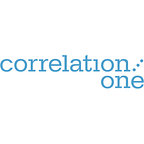About Terminal
What is Terminal?
Terminal is the world’s largest AI programming competition, organized by Correlation One. In Terminal, players play a tower defense game programmatically, by coding their strategies into algorithms. These algorithms then face off against each other in an algo vs. algo format.
Building a strategy for Terminal requires a holistic set of engineering, problem-solving, and strategic thinking skills.
Global Competition
Terminal’s first global competition — ”Season 1” — started in September 2018 and ended in December 2018. Approximately 12000 players entered the Season 1 competition. Throughout Season 1, players could access a real-time global leaderboard.
Thanks to the leaderboard, players got immediate feedback on the strength of their algorithms, and also got access to replay videos for matches they won and lost. Players were allowed to update and re-submit algorithms as many times as they liked.
After the close of Season 1, a new global competition (“Season 2”) launched in January 2019 with an end-date of April 2019.
Want to learn more or try your hand at Terminal? You can sign up here!
Game Objective
Terminal is a 2-player online strategy game played on a diamond-
shaped board. Each player occupies half of the board, and the objective is to navigate units across the opponent’s territory, overcoming the
opponent’s defenses.
Resources & Units
Players have limited resources. Those resources are used to purchase
units, which can be offensive or defensive. Offensive units move into the
opponent’s territory, and defensive units protect against incoming enemy
units.
There are three types of defensive units and three types of offensive units.
Units differ in their cost (in terms of resources), and their characteristics,
like speed and range of attack. Unit names and characteristics are
summarized in the table below.
Programmatic Interface & Starter Kit
Players play Terminal by writing code to automate their decision logic. They
receive a starter algorithm and documentation for the game
engine API.
In making their strategic decisions, player algorithms are given access
to detailed game state information — a matrix representation of the board
positions, units deployed etc. — and can use that information along with past
game state information to make decisions.
Players can also access “replay files”, which contain the time series of
game states from historical matches, in order to improve their algorithms.
Problem Solving Reports
The problem solving reports below are written by top players in the competition and are reflective of their thought process as they planned and coded their algo strategies.
